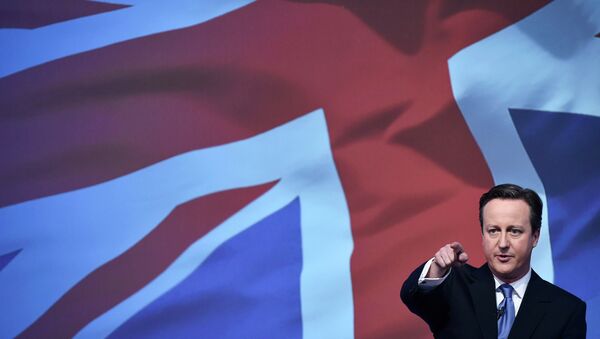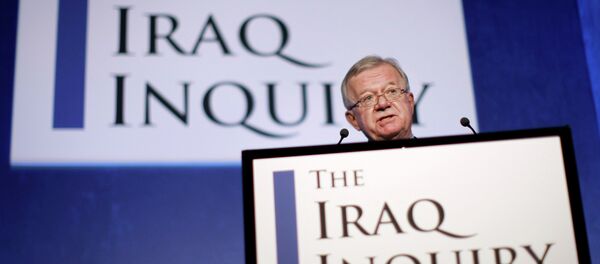The balance of power will be decided by the party that has the most number of seats after about 50 million people, who were registered to vote, were balloted for a total of 650 seats at the Westminster-based House of Commons.
EXIT POLL: CON — 316 LAB — 239 LDEM — 10 UKIP — 2 SNP — 58 #TheVote
— Britain Elects (@britainelects) May 7, 2015
The polls suggest David Cameron will have to start work on a coalition agreement with one of the parties, which will not be easy. With the Scottish National Party achieving such a victory, Labour losing so much and his Liberal Democrats in the previous coalition having been destroyed — Cameron has work to do in the next few days.
The outcome of the election will have a significant impact on the UK’s place in the world order. It could determine Britain’s membership of the European Union, its US-backed nuclear deterrent and its NATO membership, which will impinge on its so-called ‘special relationship’ with the United States.
What do Americans think about the British election? They don’t. http://t.co/zJlvGfAAvP pic.twitter.com/7pPUsCwn0Y
— YouGov (@YouGov) May 7, 2015
Tory Troubles
The Conservative Party is still dogged with its hereditary split over its membership of the European Union. After 18 years of power, under Margaret Thatcher and John Major, the party dissolved into chaos and lost to the Labour party.
Not particularly helped by the expenses scandal, in which widespread actual and alleged misuse of the permitted allowances and expenses claimed by MPs was exposed. Even that scandal followed the ‘Cash-for-Questions’ affair, in which some MPs – of all parties – were found to have accepted money from sponsors to use parliamentary time to effectively lobby on their behalf.
More importantly, the Conservative party was split over Europe. Many Eurosceptics riled against the powers of Brussels over the London-based Westminster.
The Eurosceptic rift within the party led to the establishment of the UKIP party, under Nigel Farage. Spectacularly, two sitting Tories – Douglas Carswell and Mark Reckless – stood down and went to re-election and got back in under the UKIP banner at the end of 2014. Both were re-elected.
Labour Lamentations
Ed Miliband has other problems. His predecessor but one was Tony Blair, who was already under fire over his Middle East role, having joined US President George W. Bush in the invasion of Iraq in 2003, over which there has still been no outcome of the independent, judge-led Chilcot Inquiry organised by Blair’s successor Gordon Brown.
The Iraq war has proved a major legacy issue for the Labour party, as it has still been a matter of serious dispute as to whether Blair caved in to the US and took the UK to an ‘illegal war’ that has had catastrophic effects on the Middle East, of which Blair is currently – and controversially – envoy for the Quartet of Middle East peace on behalf of the UN, the EU, Russia and the US.
Liberal With Your Promises
The Liberal Democrats have other problems too. Leader Nick Clegg agreed to the coalition with Cameron, when the Tory leader failed to gain a majority in 2010. In doing so, he reneged on his party’s pledge to slash the much-hated tuition fees in England and Wales. His value is low, among young voters. His seat, Sheffield Hallam, is also at stake overnight.
Scotland the Brave
The Scottish National Party (SNP), who failed to make the break for independence in the referendum in September 2014, but who managed to gain a huge endorsement for more rights for the Scottish Government, has lots to play for. They are set to gain huge numbers of seats from Labour, who are set to lose the majority of their Scottish seats.
I'd treat the exit poll with HUGE caution. I'm hoping for a good night but I think 58 seats is unlikely! #GE15
— Nicola Sturgeon (@NicolaSturgeon) May 7, 2015
The SNP are likely to be one of the parties thinking about who best to throw their lot in, with whoever they can on Friday establish a powerful pull over the next UK government.
"It is time to say No to wasting £100billion on Trident" #GE15 #VoteSNP pic.twitter.com/KFmUXOZJeY
— The SNP (@theSNP) May 6, 2015
The UK’s only nuclear weapon submarine fleet is based in Faslane, Scotland and the SNP has made clear it wants rid of them. Whoever they get into bed with will have to negotiate, either to renew the Trident progam, or reach a compromise on other issues. Either way, the SNP will have bargaining power.
UKIP and Chips
As the polls closed, the counting began on the one new political force that could hold the bargaining chips for David Cameron. With the need to rein-in his Eurosceptics within his party and make good on his In-Out referendum on membership of a “reformed” European Union, Cameron may well have to swallow pride and do a deal with the few – if any – UKIP MPs that make it to Parliament.
These 5 key pledges show quite how #UKIP differs from the political establishment. #VoteUKIP for real change. pic.twitter.com/sDn4ITVqs2
— Nigel Farage (@Nigel_Farage) May 7, 2015
Having promised a referendum on Europe, he may well need UKIP’s support, but may have to come to a compromise with other pro-Europe parties to carry through a watered-down wording of whatever he puts to the British public.
Whatever happens tonight, the UK political scene will never be the same again.





